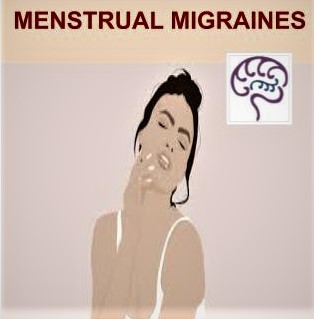
The hormones estrogen and progesterone play key roles in regulating the menstrual cycle and pregnancy and may also affect headache-related chemicals in the brain. Having steady estrogen levels may improve headaches, while experiencing estrogen levels that dip or change can make headaches worse. During menstruation the drop in estrogen just before your period may contribute to headaches. Many women with migraines report headaches before or during menstruation.
Treating menstrual migraines
- Ice Hold a cold cloth or an ice pack to the painful area on your head or neck.
- Relaxation exercises. Try relaxation exercises to lower stress.
- Biofeedback. Biofeedback may improve your headaches by helping you monitor how your body responds to stress.
- Acupuncture. Acupuncture may improve your headaches and help you relax.
- Over-the-counter pain relievers. Nonsteroidal anti-inflammatory drugs (NSAIDs), such as naproxen sodium (Aleve) or ibuprofen (Advil, Motrin IB, others).
- Triptans. Triptans often relieve pain from your headache within two hours and help control vomiting.
Preventive treatment
If your menstrual cycle is regular, it may be most effective to take preventive headache medication starting a few days before your period and continuing through up to two weeks after the start of your period. Preventative medications may include beta blockers, anticonvulsants, calcium channel blockers, antidepressants or magnesium. Your doctor might also consider monthly injections of a calcitonin gene-related peptide (CGRP) monoclonal antibody to help prevent your headaches, especially if other medications aren’t effective. Making lifestyle changes, such as reducing stress, not skipping meals and exercising regularly, also may help reduce the frequency, length and severity of migraines. Using hormonal contraception to prevent menstrual-related migraines may be appropriate for women who haven’t been helped by other methods.
By: Rajni Bala, NP
